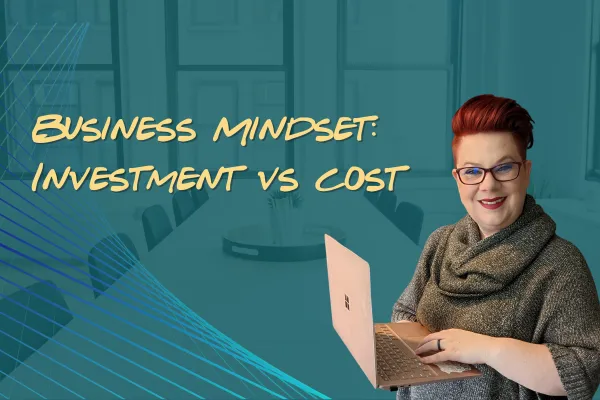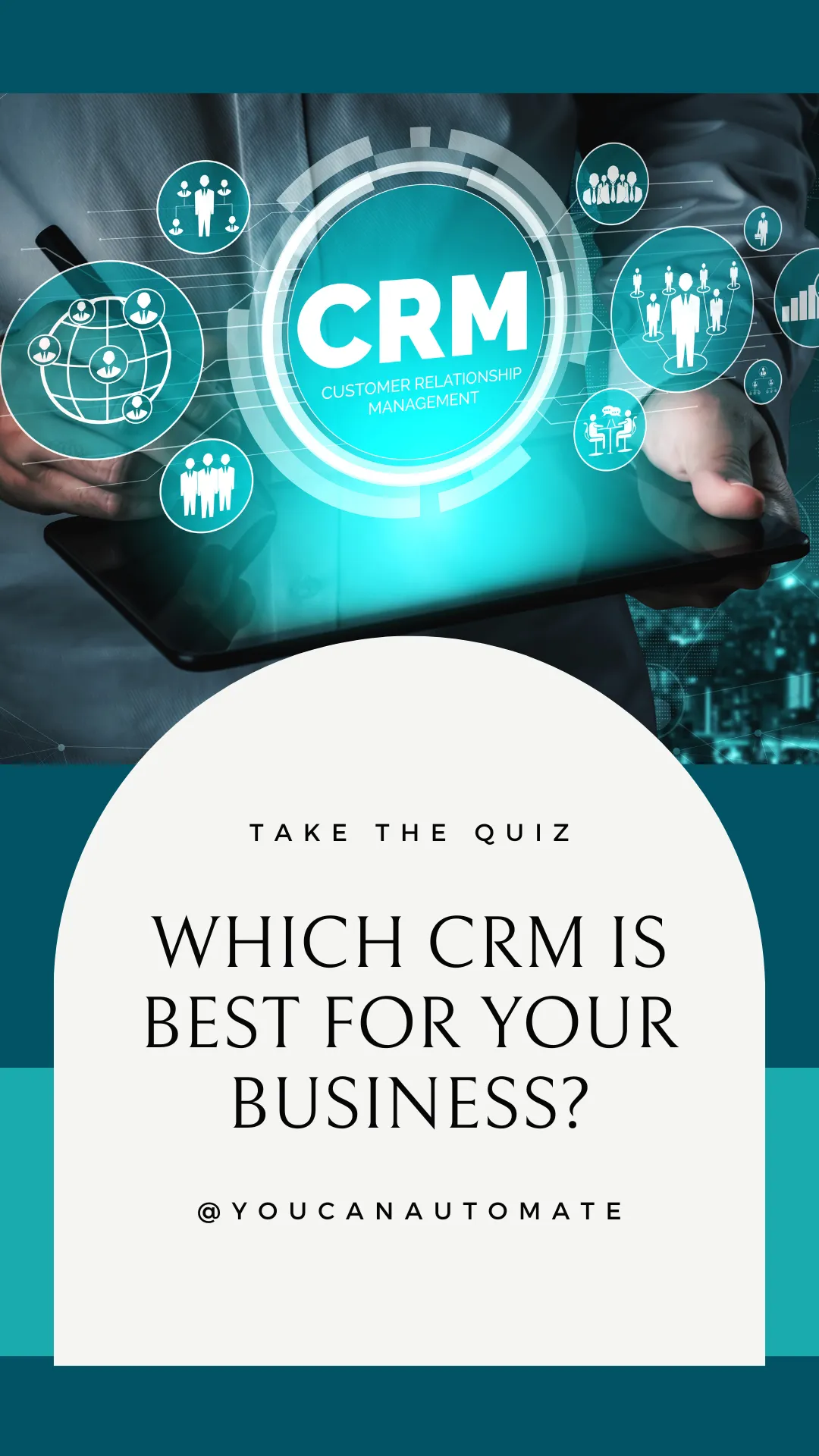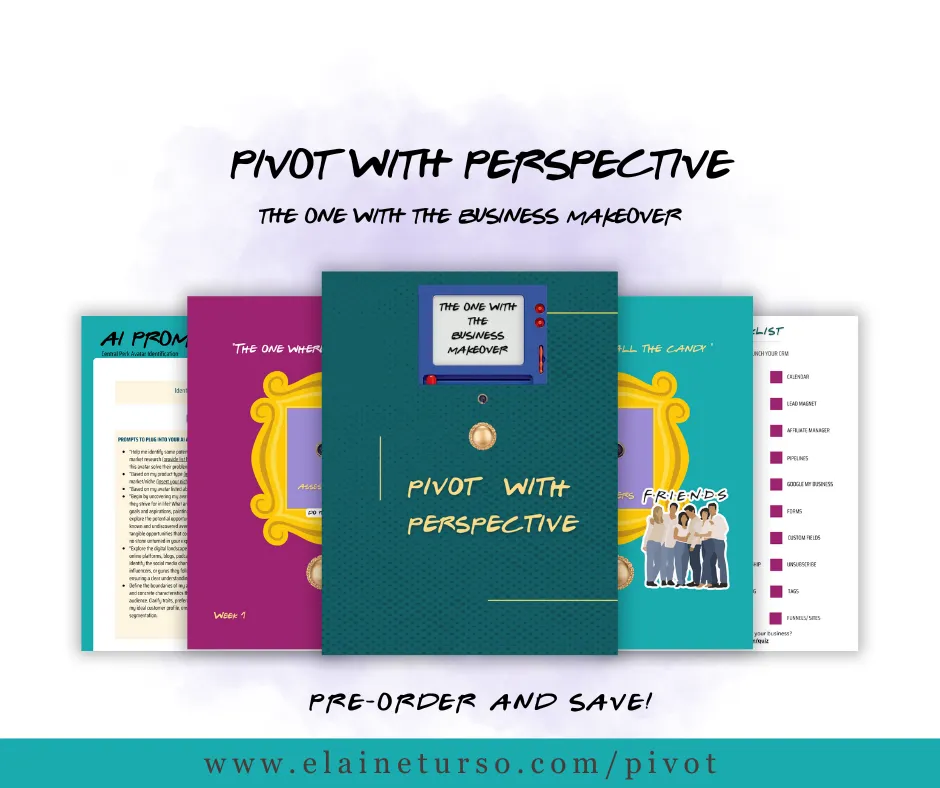
Business Mindset: Investment vs. Expense
As a business owner one of the fundamental skills we all need to master is the ability to distinguish between investments and expenses. Understanding the difference between the two is not just a matter of bookkeeping; it's a mindset that can profoundly impact the success and growth of our businesses. In this blog post, we'll explore the best way to describe investment versus expense in the context of the entrepreneurial mindset.
Investment: Planting Seeds for Future Growth
Imagine your business as a fertile garden where you have the opportunity to plant seeds that will grow into fruitful trees over time. These seeds are your investments. They represent expenditures made with a clear expectation of generating future income or enhancing the overall value of your company.
Entrepreneurs view investments as strategic decisions, much like planting the right seeds in the right soil. These seeds can take various forms, such as:
Hiring Team Members: Bringing in talented individuals who can contribute their expertise and help your business flourish in the long run. BIG TIP: Hire and delegate to people who are smarter than you!
Research and Development (R&D): Investing in the innovation and improvement of your products or services to stay competitive and meet evolving customer needs. BIG TIP: Do Market Research, and often.
Marketing Campaigns: Allocating resources to marketing and advertising campaigns that expand your reach and attract new customers. BIG TIP: Consider running ads where your customers are already hanging out.
Technology: Upgrading your company's infrastructure or adopting new technologies to streamline operations and enhance efficiency. BIG TIP: Finding an all-in-one CRM like You Can Automate can make your business run so much smoother! (And I can set it up for you!)
When entrepreneurs make these investments, AND they do so with a clear vision of how these actions will translate into future growth, it's guaranteed to result in growth! It's all about planting seeds today that will yield a bountiful harvest tomorrow. "Your future is created by what you do today, not tomorrow." - Robert Kiyosaki
Expense: The Necessary Costs of Running the Show
Now, let's talk about expenses. While investments are focused on future growth, expenses are the costs incurred in the day-to-day operations of your business. These expenses are necessary to keep the lights on, employees paid, and products or services delivered to your customers.
Entrepreneurs must manage expenses efficiently to ensure profitability. However, it's important to note that expenses, by themselves, don't necessarily contribute to long-term growth. They are the ongoing costs required to maintain your business's current state of operations.
Some common examples of expenses include rent, utilities, salaries, education, office supplies, and insurance. These are essential for running the business, but unlike investments, they don't directly contribute to expanding your business or increasing its value.
Balancing Act for Entrepreneurial Success
In the world of entrepreneurship, success often hinges on striking the right balance between investments and expenses. Entrepreneurs that prioritize making investments will result in scaling the business and achieving long-term goals. However, they also need to manage expenses wisely to maintain the day-to-day operations efficiently.
Here are some tips for finding the right balance:
Set Clear Goals: Define your short-term and long-term business goals. This will help you determine where to allocate resources as investments and where to cut unnecessary expenses. BIG TIP: Write down your planned accomplishments (aka Goals) for 30-days, 60 days, 90-days, 6 months, 9 months and 1 year.
Regularly Evaluate Costs: Periodically review your expenses to identify areas where you can trim unnecessary spending without compromising quality or customer satisfaction. BIG TIP: Create a Spending Plan for your business. First step - Look at your expenses from last year and categorize them. Then decide where you need to increase and decrease spending. I recommend also hiring an expert, like Mandy McGowan to help you, she's an Entrepreneur Finance Coach and Virtual CFO.
Monitor ROI: Keep a close eye on the return on investment (ROI) for your investments. Are they generating the expected returns? If not, consider adjusting your strategies. BIG TIP: Remember that short term vs long term investments will not have the same payoff!
Stay Adaptable: The business landscape is ever-changing. Be ready to pivot and reallocate resources as needed to stay competitive and seize new opportunities. BIG TIP: Always be ready to PIVOT!



